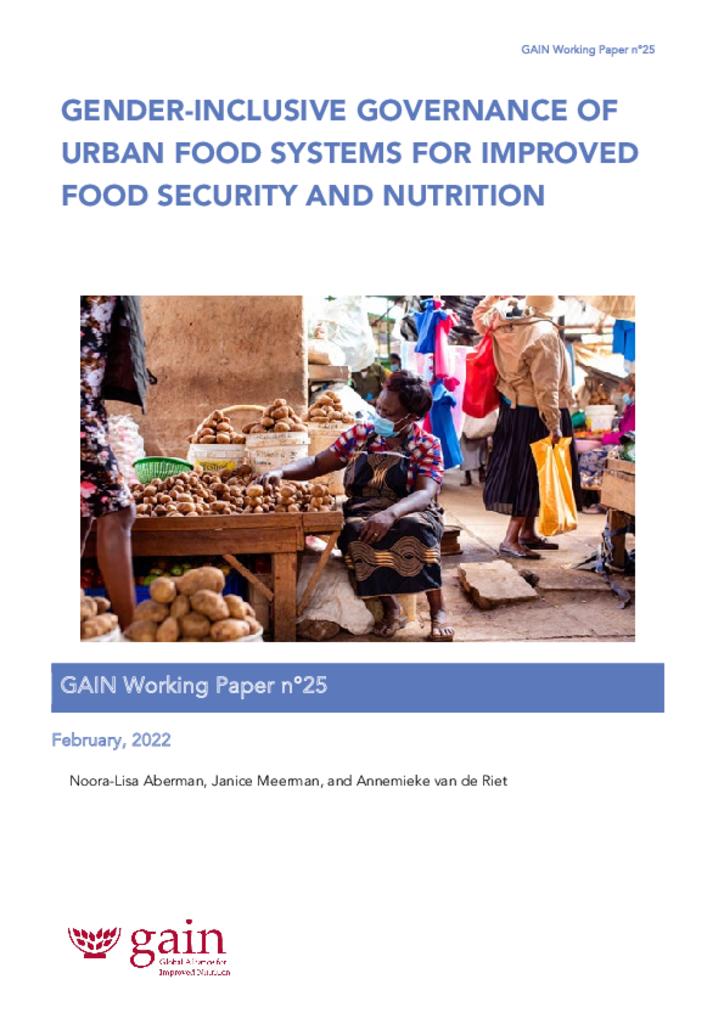This paper responds to the need to better understand the interaction between gender norms and urban food systems in low- and middle-income countries. More people are living in cities than ever before. As a result, the role played by urban food systems is of growing importance at both the population level and for individuals, especially women, who are considered responsible for meal provision in most cultures.
Unfortunately, in many countries, discriminatory gender norms exclude women from many income-generating opportunities offered by cities, reducing food security for themselves and their families. As a result, many women resort to operating within informal livelihood channels, frequently as food vendors, relying on social networks to procure both food and money. In addition to providing livelihood opportunities for many women, informal food vending networks are the primary food source for low-income urban residents of both genders. Despite these important functions, informal markets are routinely overlooked and unsupported by urban food system actors.
As such, engagement with urban planners and regulators to increase support to informal food networks is a key programme entry point. Advocating for strategies to address the broader, more ubiquitous nutrition-related challenges that women face in cities is an additional consideration. This could be done, for example, lobbying municipal authorities to increase female representation on regulatory boards and other governance platforms.
